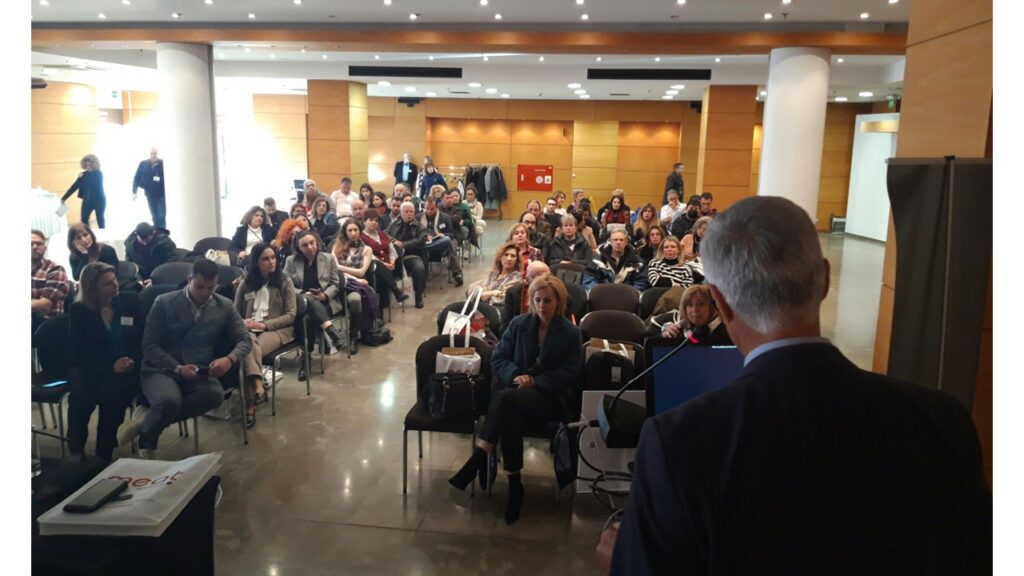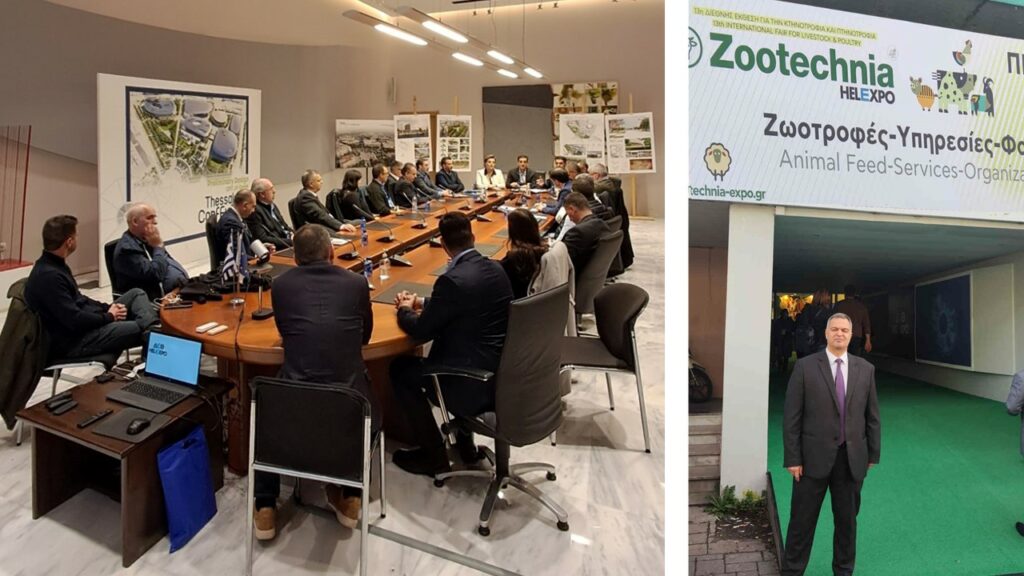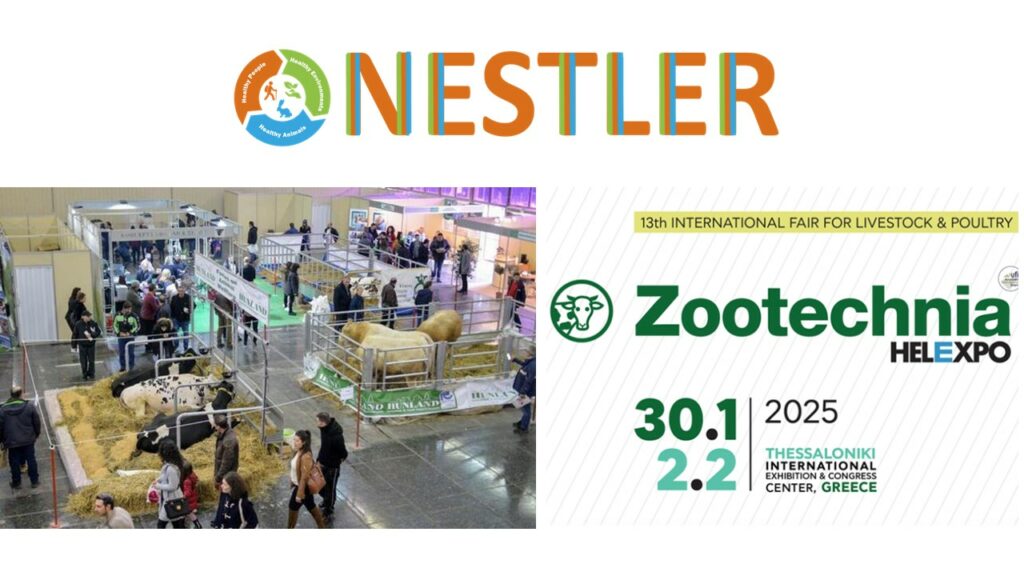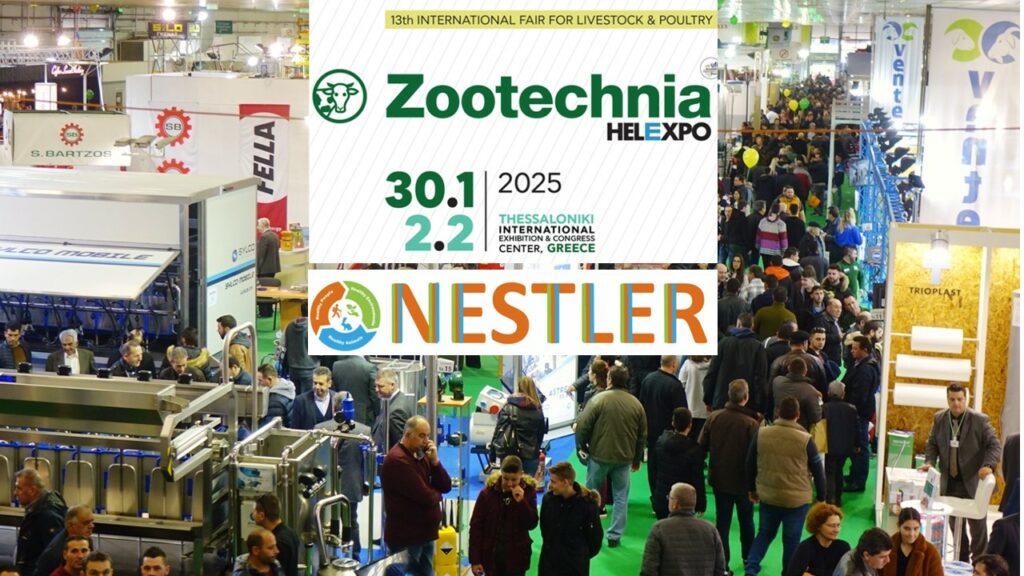The NESTLER project was showcased at the Zootechnia 2025 Exhibition by the project coordinator, Dr. Theodore Zahariadis. Zootechnia is the only specialized exhibition in Greece dedicated to the livestock and poultry sector. Since its inception in 1999, Zootechnia is organized every two years, serving as a pivotal platform for the presentation of productive animal species, advanced machinery, innovative supplies, and sector-specific services. The primary objective of the exhibition is to facilitate a dynamic marketplace for the livestock industry, fostering collaboration between specialized enterprises, public and private sector stakeholders, professionals, and the broader public.

During the event, Dr. Zahariadis engaged in in-depth discussions with representatives of the Greek Ministry of Rural Development and Food, as well as livestock and poultry producers from Greece and the Balkans. He presented key findings from the NESTLER project, with particular emphasis on the utilization of Black Soldier Fly (BSF) larvae as a sustainable alternative protein source in livestock feed.
In parallel to the Zootechnia exhibition, the NESTLER project coordinator participated in a strategic meeting on that was organized by ETHEAS (Greek National Union of Agricultural Cooperatives), on the topic of training and certification of livestock cooperatives, enabling them to provide advisory services to their members and livestock organizations in their broader region. The meeting was attended by the President of ETHEAS, Mr. Pavlos Satolias, members of the ETHEAS Board of Directors, the Head of the Special Management Service of the Rural Development Program of Greece, Mr. Nikolaos Manetas, professors from five universities, and representatives of livestock cooperatives. Within the meeting, Dr. Zahariadis highlighted the importance of Circular Economy and critical aspects related to the risk assessment of zoonotic disease transmission in small ruminants, such as goats and sheep, underscoring the project’s contributions to animal health, biosecurity, and sustainable livestock production.



